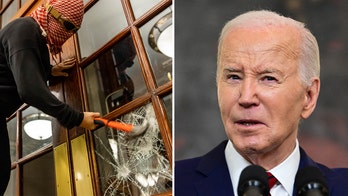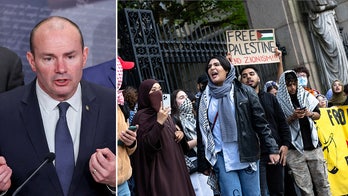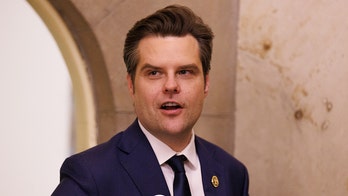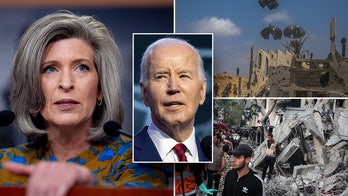Jimmy reacts to the latest disruptive climate protest on 'Fox & Friends'
During an appearance on ‘Fox & Friends,’ Jimmy Failla shares his thoughts on the climate change protesters in Nevada who blocked traffic and were eventually dispersed by tribal police.
Federal Emergency Management Agency (FEMA) Administrator Deanne Criswell suggested Tuesday that recent storms, including the devastating fires in Hawaii, were caused by climate change.
During a White House briefing Tuesday afternoon, Criswell said extreme storms were part of a "new normal" Americans face after a reporter asked her whether such storms are out of the norm and whether there have been "more intense events than before." The FEMA administrator added the nation should invest in mitigation and resilience measures to combat future storms.
"What I can say is that we don't have a typical operational season like we've had in the past," Criswell remarked. "We would normally prepare our staff to be extra alert during the peak of hurricane season, which is where we find ourselves right now. But our operational tempo has been year round. We started with atmospheric rivers in California in January, extreme tornadoes in the spring to the wildfires.
"Now, we are in peak hurricane season, and we have had an unprecedented number of disaster requests from governors because of the extreme weather that they're experiencing.
EXPERTS THROW COLD WATER ON DEM CLAIMS THAT HAWAII WILDFIRES CAUSED BY CLIMATE CHANGE
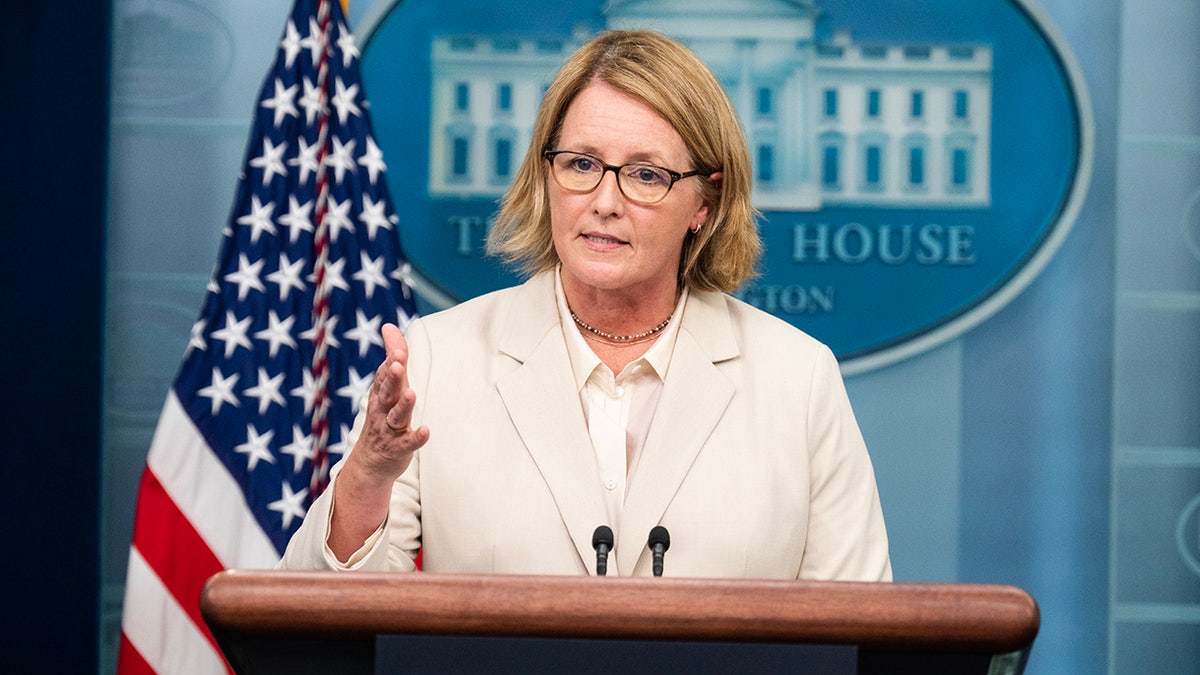
FEMA Administrator Deanne Criswell speaks about the Maui wildfires during a White House press briefing earlier this month. (Tom Williams/CQ-Roll Call, Inc via Getty Images)
"This is our new normal. This is the operational tempo that we find ourselves in. We have to continue to invest in mitigation and resilience to help these communities reduce the impact from these storms."
Democratic lawmakers and climate activists have similarly argued that recent deadly storms have been triggered by man-made global warming. They have called for policies to curb carbon emissions by massively reducing reliance on fossil fuels and for President Biden to declare a climate emergency.
Sen. Jeff Merkley, D-Ore., said the Hawaii fires proved "climate chaos wreaking havoc on ecosystems everywhere is the new norm," and Sen. Dick Durbin, D-Ill., warned the fires were a "devastating view of our planet as we fail to adequately address the climate crisis."
In a lawsuit filed Thursday, the government of Maui County, Hawaii, alleged Hawaiian Electric Company (HECO) and its subsidiaries failed to properly power down live electrical equipment amid a red flag windstorm earlier this month. As a result, the suit adds, downed power lines sparked a series of fires on the island, leading to more than a hundred deaths and mass devastation.
"The lawsuit alleges that the Defendants acted negligently by failing to power down their electrical equipment despite a National Weather Service Red Flag Warning on August 7th," Maui County said in a release announcing its lawsuit.
"The lawsuit further alleges HECO’s energized and downed power lines ignited dry fuel such as grass and brush, causing the fires," the announcement added. "The lawsuit also alleges failure to maintain the system and power grid, which caused the systemic failures starting three different fires on August 8th."
The county further stated in its lawsuit that HECO has a duty "to properly maintain and repair the electric transmission lines, and other equipment including utility poles associated with their transmission of electricity, and to keep vegetation properly trimmed and maintained so as to prevent contact with overhead power lines and other electric equipment."
In response to the lawsuit, HECO pushed back on allegations its power lines caused the fires. The company said it de-energized power lines in western Maui, where much of the damage occurred Aug. 8.
"We were surprised and disappointed that the County of Maui rushed to court even before completing its own investigation," Shelee Kimura, the president and CEO of Hawaiian Electric, said in a statement Sunday.
"We believe the complaint is factually and legally irresponsible. It is inconsistent with the path that we believe we should pursue as a resilient community committed and accountable to each other as well as to Hawaii's future."
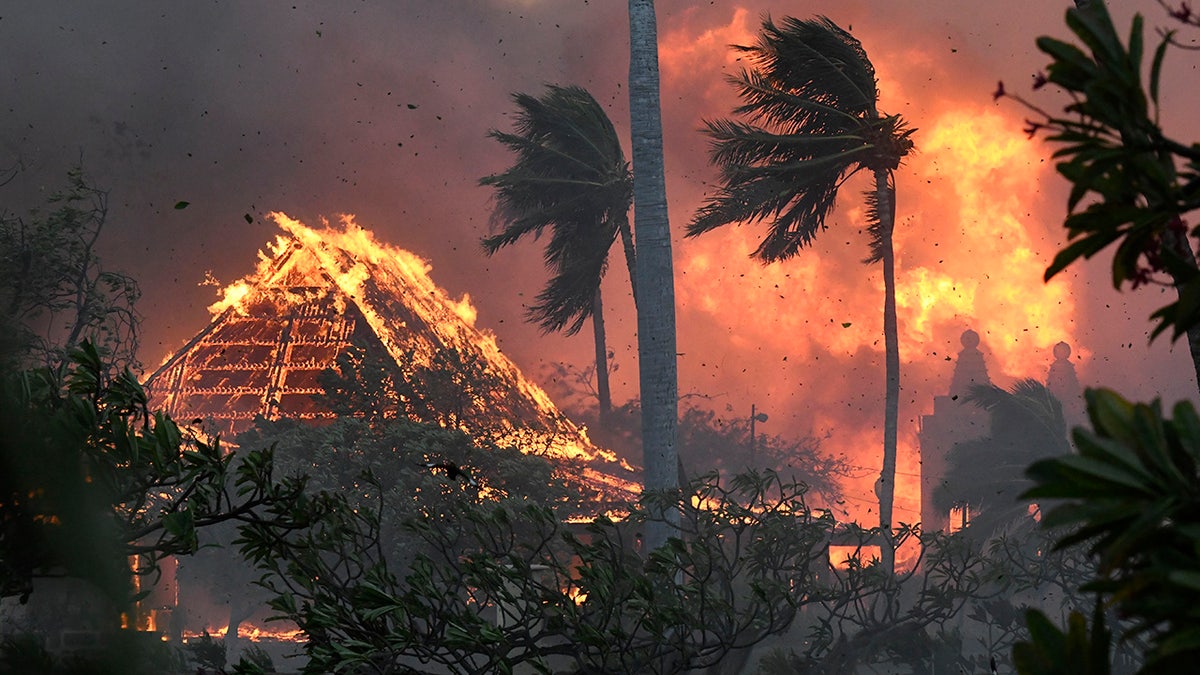
Fires rage at the historic Waiola Church in Lahaina, Hawaii, Aug. 8. (Matthew Thayer/The Maui News via AP)
In addition, experts have thrown cold water on claims that climate change triggered the Maui fires even before the lawsuit. Instead, they said the event was largely a result of years of poor forest and brush management, in addition to declining agriculture. Such conditions, they said, allow fires to spread rapidly and make fires harder to contain.
CLICK HERE TO GET THE FOX NEWS APP
"Blaming this on weather and climate is misleading," said Clay Trauernicht, a University of Hawaii at Manoa professor and environmental management expert. "Hawaii's fire problem is due to the vast areas of unmanaged, nonnative grasslands from decades of declining agriculture."
"These savannas now cover about a million acres across the main Hawaiian Islands, mostly the legacy of land clearing for plantation agriculture and ranching in the late 1800s/early 1900s," he added. "The transformation to savanna makes the landscape way more sensitive to bad 'fire weather' — hot, dry, windy conditions. It also means we get huge buildups of fuels during rainy periods."
HECO didn't immediately respond to a request for comment.




